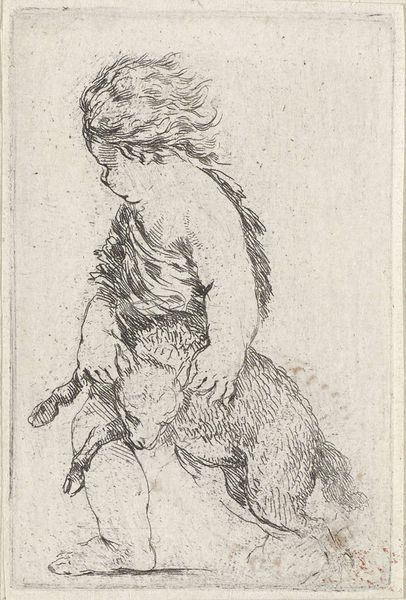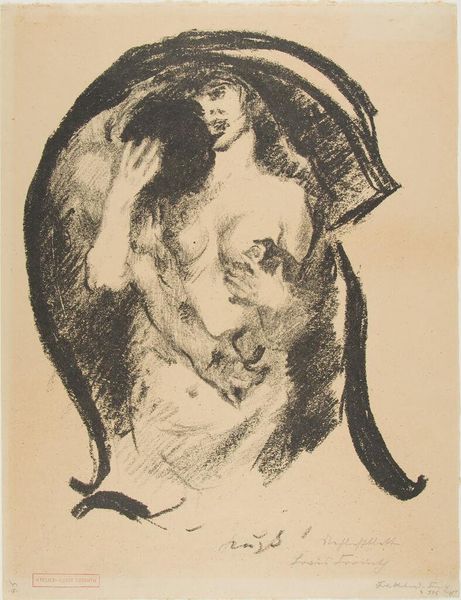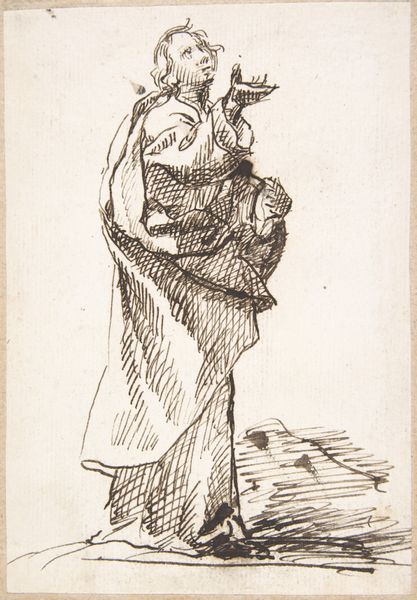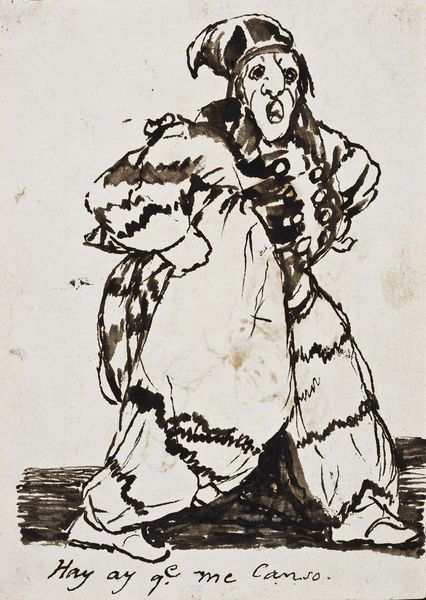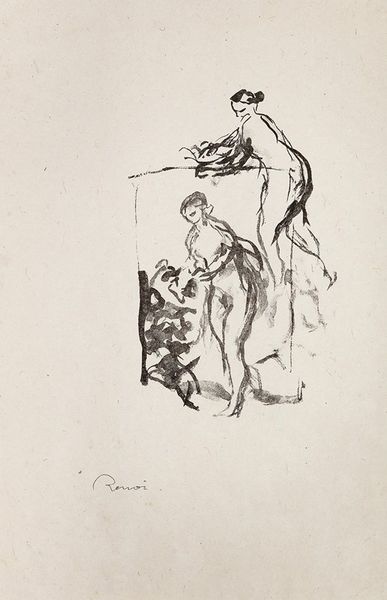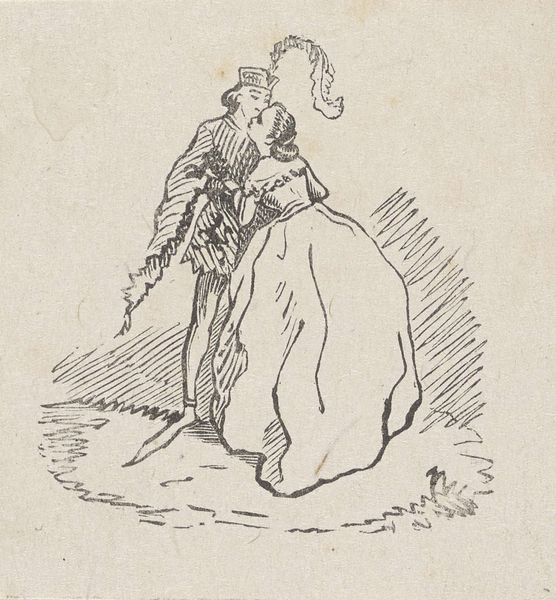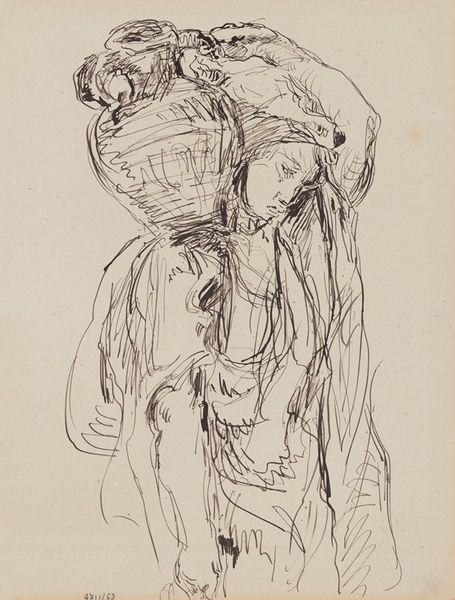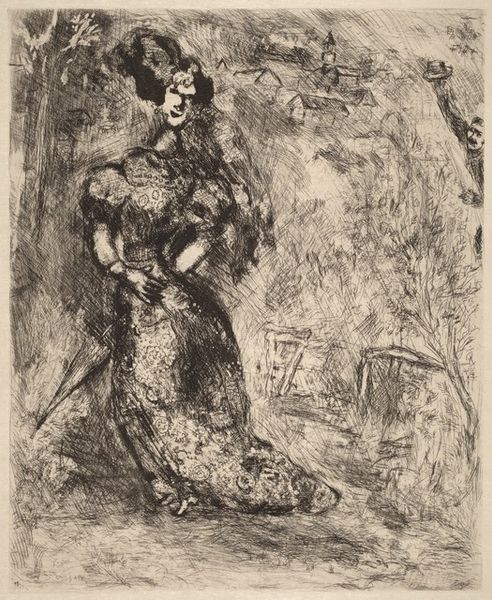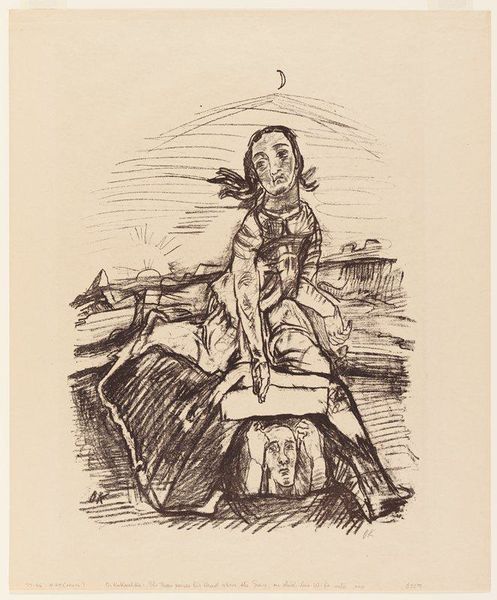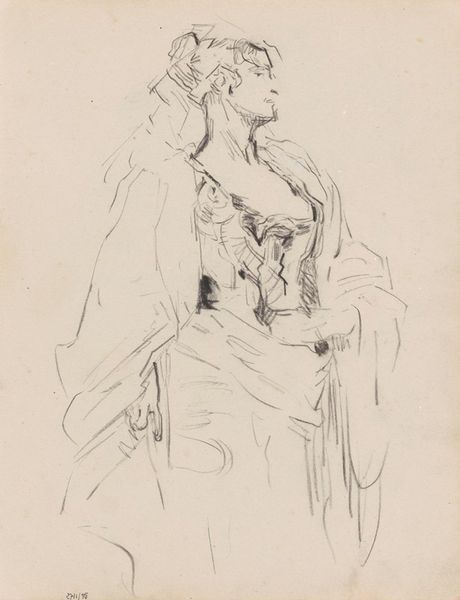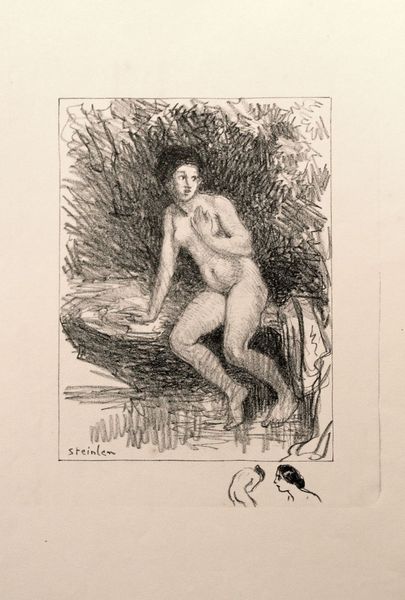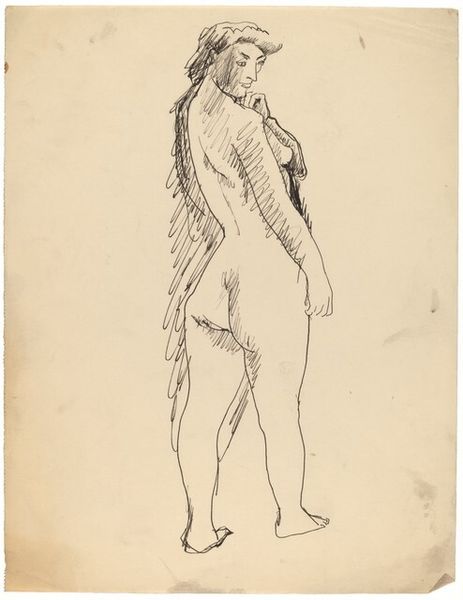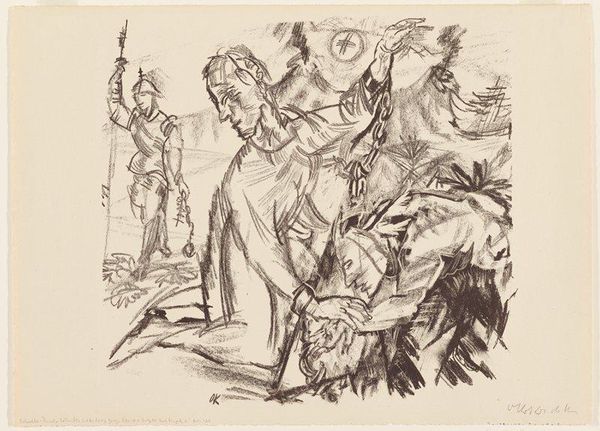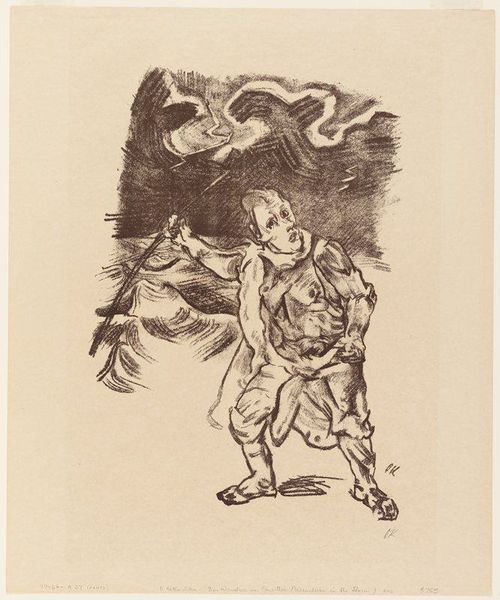
drawing, print, ink
#
portrait
#
drawing
#
ink drawing
# print
#
figuration
#
ink
Copyright: National Gallery of Art: CC0 1.0
Curator: "The Shepherdess," created by Imre Reiner in 1948, immediately presents as a scene of quiet strength. It’s an ink drawing, perhaps a print given its graphic quality. Editor: It’s quite striking. There's a rawness in the line work, an almost frantic energy to the cross-hatching. You can feel the pressure of the artist's hand at work here. And the density of the ink… I’m curious about the paper and the process used to achieve this effect. Curator: The figure herself holds a powerful weight, not only in terms of what she physically carries, a lamb perhaps, but the shepherdess embodies resilience. The figure blends a romantic trope of rural virtue with a Madonna-like association, linking this pastoral life to wider archetypes of feminine strength. Editor: Look at the way Reiner uses line weight to create volume, the textures in the shawl versus the rough fur of the animal… It really highlights his skill. It's almost a celebration of the act of mark-making, pushing the boundaries of traditional printmaking, in my opinion. What was the environment, in terms of labor and economic circumstances, for a piece like this at the time of its creation? Curator: That is interesting given post-war social and political realities in Europe, with lingering connections to medieval tropes: a timeless quality persists. Perhaps it reflects an unconscious desire to find solace or order in nature at a chaotic historical juncture. The lines around her eyes, the almost sorrowful downturn of her lips. Does that reflect a deeper social concern, maybe? Editor: Possibly. Or it might simply be the availability of the materials, the speed and ease with which one could produce prints. These are all pertinent influences. Mass-producible imagery in this era becomes much more complex, it shifts with production processes themselves. Curator: Indeed. There’s an open invitation here: to consider symbols of feminine authority, or broader historical concerns regarding the conditions of its manufacture, production, and distribution. Editor: A productive push and pull, ultimately drawing me back to this arresting composition. Thank you.
Comments
No comments
Be the first to comment and join the conversation on the ultimate creative platform.
